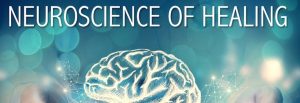Exhausted, dispirited, regretting your career choice, angry with the system and with the endless demand of patients? You are not alone.
Learn how to revitalise your medical career
The good news is that you can find joy and satisfaction in work again – without having to change your job! You have far more power to change your experience of work that you imagine. Yes, the system is broken, overwork is rife, and patient demands seem endless. But we know of many doctors who have completely transformed their work and life satisfaction, even when they were on the verge of quitting medicine altogether. How is this possible? There are five key steps:
1. Reconnecting to the heart of your practice
Early in our careers, we relish the thrill of learning new knowledge and skills and we get intense satisfaction from expert practice. But in mid-career, the challenging becomes routine. What was once exciting can become drudgery. The doctors who thrive are those who focus on the human connection, compassion and caring. Compassionate care can dramatically reduce patient demands, it saves time and effort, you get better outcomes, and your patients are happy. The joy and satisfaction of compassionate caring is endless. Compassion is an antidote to burnout.
2. Healing your trauma
A medical career is brutalising. All of us have endured traumatic events, most often without support. We suffer alone. The neuroscience of trauma tells us that thoughts, feelings, beliefs and body reactions get hard-wired into our operating system – causing chronic stress. While most doctors are incredibly resilient, the effects of trauma take a toll on our emotional and physical wellbeing. Remarkably, new science has uncovered ways to rapidly delete the nerve connections that encode the trauma, freeing us from our past. A lot of negative emotions and stress can simply be abolished.
3. Changing your thinking styles
Most doctors develop what is called ‘black hat thinking’, an overly critical and pessimistic thinking style. It’s part of our medical training, always to be seeking hidden risks and finding out what is wrong with our patients. Unfortunately, we fall into the habit of pessimistic thinking styles in our personal lives too. When things don’t go so well, we tend to blame ourselves, we begin to anticipate what else can go wrong, and we begin to think that everything is going to be a disaster. When five things go wrong before ten in the morning, we tell everyone we are having a ‘bad day’. How do we know? It’s only 10am, the rest of the day might be wonderful! But so often our pessimistic thinking and bad mood ruins the rest of the day. Also, negative thinking is shown to constrict our perceptual field, so we don’t notice opportunities.
The good news is that extensive research shows that people who notice their thoughts and correct them to a more realist version, dramatically enhance their performance in almost any task and they become much happier. As we build positivity, we become more creative and perceptive, finding new solutions to problems.
4. Self-compassion
Did you ever stop to listen to the voice in your head, when it starts criticising you? Doctors tend to be harsh self-critics. The kind of things we say to ourselves, we would NEVER say to a friend or colleague. When we are highly judgmental of ourselves, we tend to judge others. But if we can learn self-kindness and self-compassion, the whole world softens. We come to realise that suffering is the human condition, that we are not alone in our troubles. Times when you would have been frustrated or angry with others, you bring more compassion and understanding. The world stops being angry with you. If you learn to care for yourself, you care more for your patients and colleagues (and maybe your spouse too).
5. Taking back your personal power
Many of us feel as if we are helpless victims of the system, facing ever increasing demands and losing control of our work life. In actual fact, much of the reality ‘out there’ is created by our own attitudes, thoughts and choices, thus we have huge power to shape the world around us.
Many of the solutions are counter-intuitive. For instance, if the problem is excessive patient demand the solutions is to SLOW down, really listen to what is important for the patient and to respond to that. Patients are more satisfied, many of their demands melt away, and your work goes better. You learn the things that are really important for your care. ‘Difficult’ patients start to melt away. You actually save time. The doctors who are flourishing are relaxed and at ease in their work, they take pleasure from their patient encounters, and they still get the same caseload completed.
Very often, in the rush to establish our professional careers we forget to clarify our values. What is most important to us in life? Is it the big house or the new car, or maybe we could settle for a more modest lifestyle and take a three-day weekend every week to be with family and friends? How many of life’s pleasures have you sacrificed to your medical career?





 What people have said about Robin’s work:
What people have said about Robin’s work: